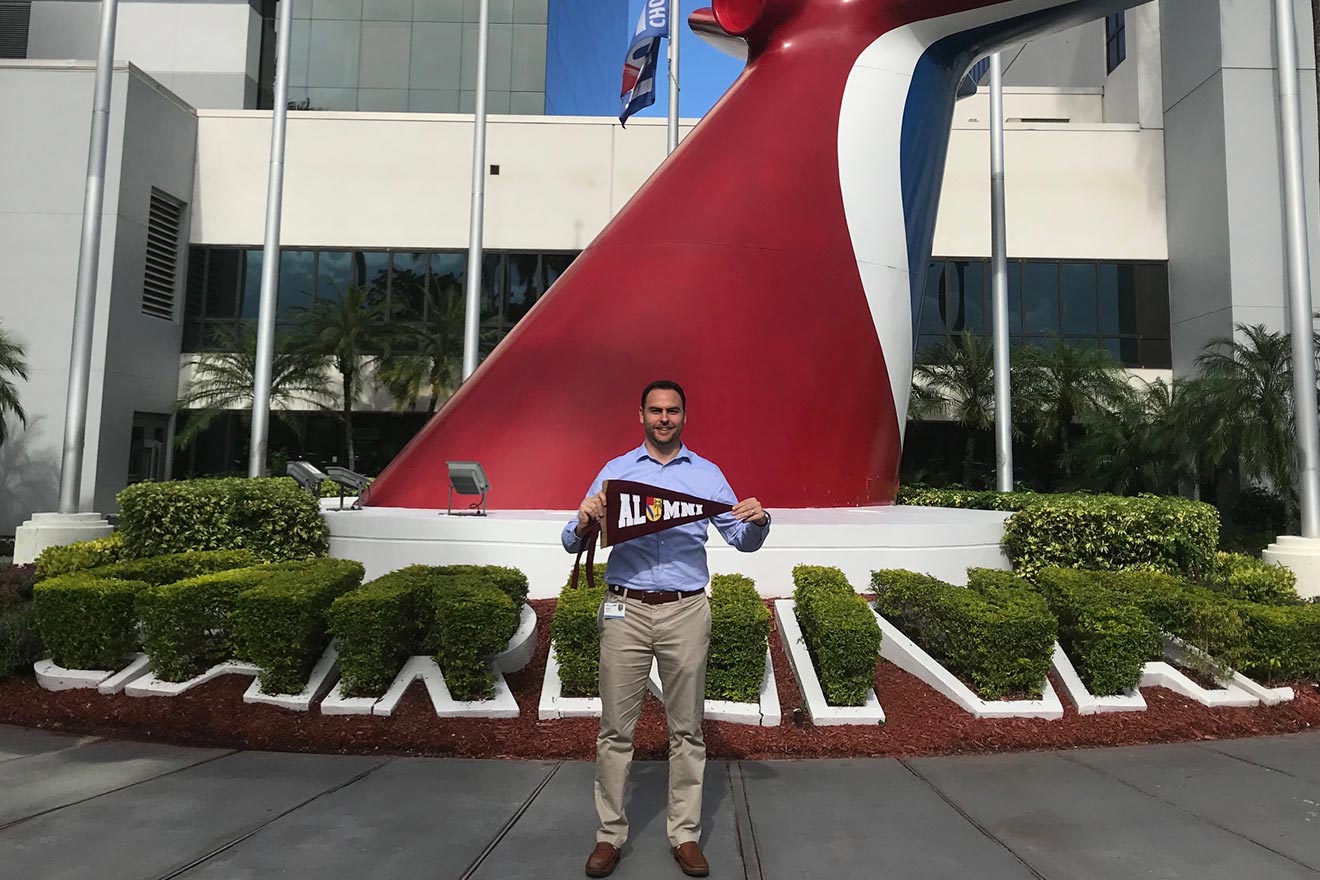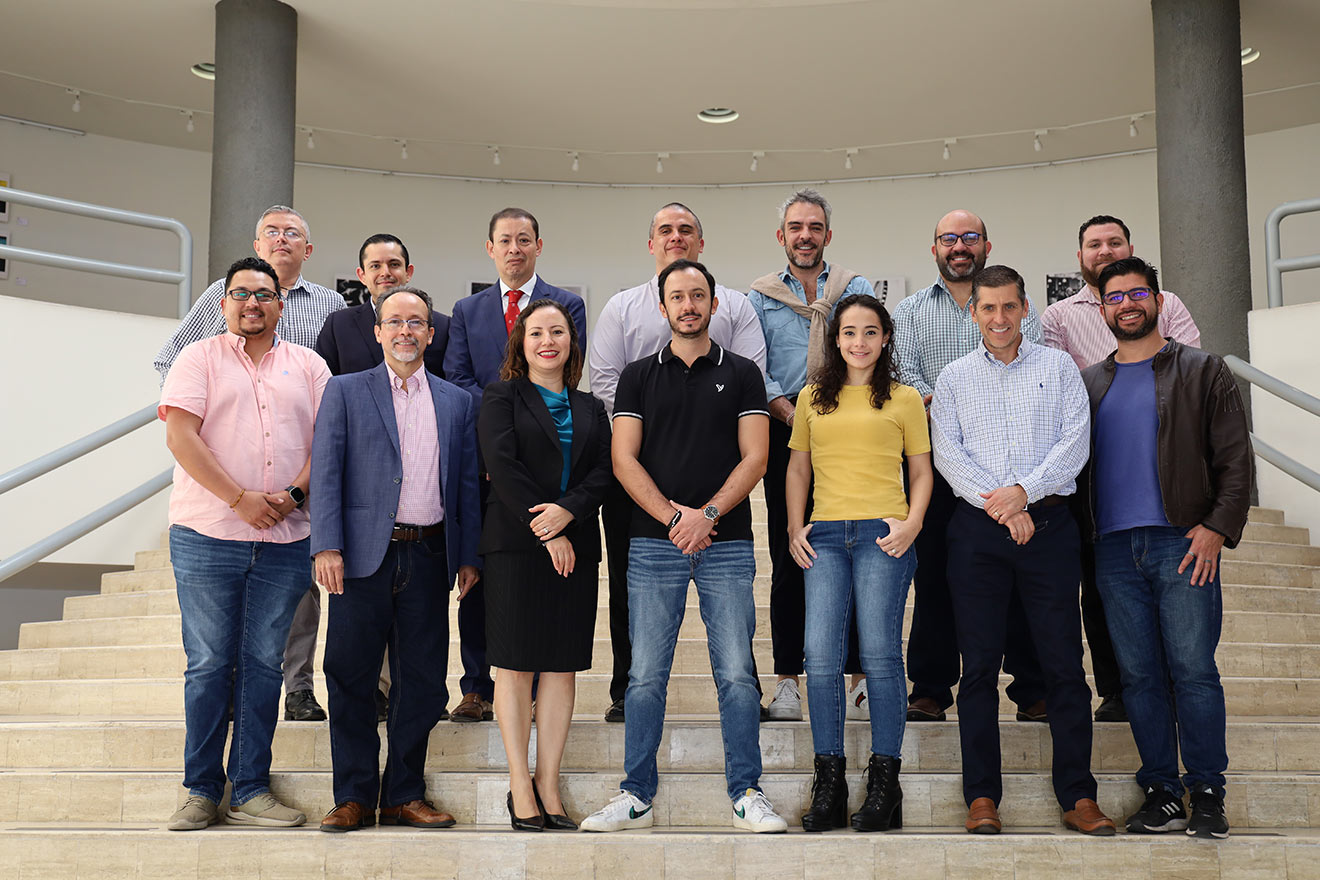Mexico City, November 22, 2023.- In order to reflect on the advances in financial inclusion, digital banking, fintech, the fintech law in Mexico and the impact of these trends on the economy and Mexican society; the bachelor's degree programs of Administration and Financeas well as the Quantitative Financeboth from the Universidad Panamericanain conjunction with Dentons Global Advisor, held the following panel Digitalization in the financial sector, entrepreneurship, youth and financial inclusion, Fintechs and Neobanks in Mexico, reality and regulation.
The event, held at Ciudad Panamericana, featured panelists Dr. Santiago García Álvarez, rector of the Universidad Panamericana campus Mexico; Mr. Iván Canales, general director of NU Mexico and Mr. Álvaro Vértiz, partner of Dentons, Global Advisors and general director; as well as Dr. Jesús de la Fuente, president of the National Banking and Securities Commission, as moderator.
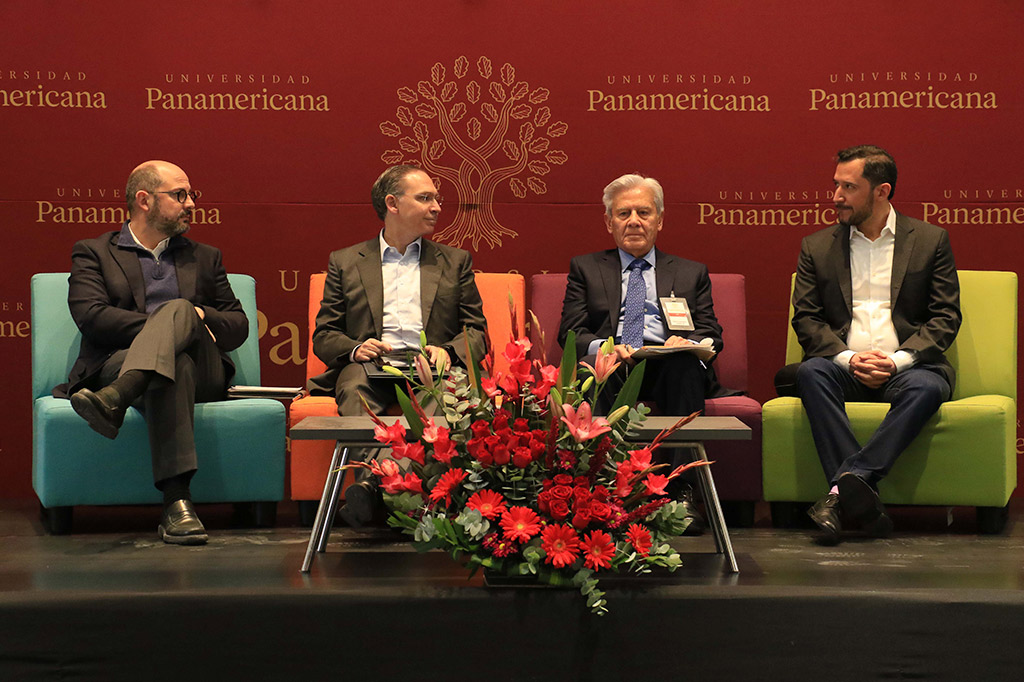
Fintechs, banks: significant development in Mexico
Dr. Jesús de la Fuente said: "Mexico is receiving numerous applications to establish fintechs, banks and other financial entities, which represents a unique opportunity in the country's history for significant development". He also mentioned the importance of revitalizing the securities market and anticipated the enactment of a new law that will simplify the market and contribute to its development.
He also emphasized financial inclusion as a crucial issue: "In Mexico we need to reach many parts of the country where there are no financial institutions, where there is a lack of education because there is a lack of universities, and here Universidad Panamericana is an important factor, as it can become a great pioneer".
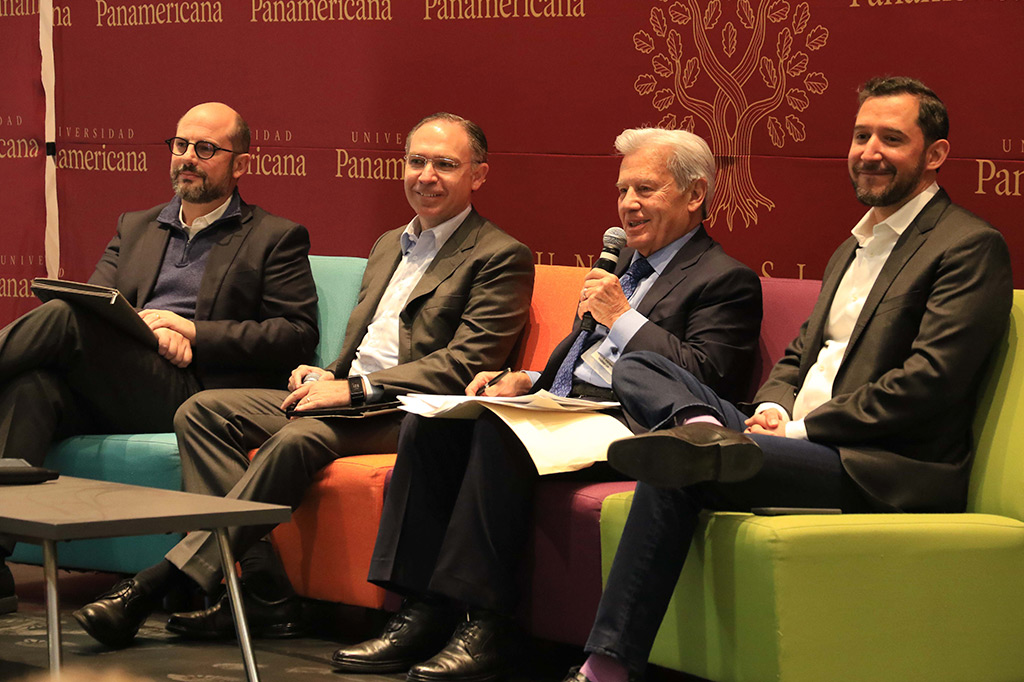
Changes in the world of education
In his speech, Dr. Santiago García addressed key issues in educational transformation, collaboration with industry and the importance of financial inclusion in Mexico. He highlighted the need to adapt to significant changes in the world of education, especially at the university level.
He noted the importance of establishing "collaborative initiatives with companies and organizations, for example, such as the corporate chair that was implemented with BlackRock, with the aim of balancing strong academic foundations with programs and agreements that offer students hands-on, direct experiences with industry professionals."
In relation to financial inclusion, he recognized the opportunity Mexico has and advocated for collaboration between educational institutions, financial entities such as Nubank and regulatory bodies such as the National Banking and Securities Commission to organize joint courses and broaden awareness of the importance of financial inclusion in the country.
He added that "the proposal to build a Chair of Financial Inclusion is a very promising initiative and aligned with the objectives of promoting financial education in Mexico, since Panamericana is managed with a comprehensive and adaptive vision, as it manages flexibility (face-to-face and online), both in terms of corporate chairs for undergraduates, and in the offer of courses, diplomas or micro-credentials for postgraduates" .
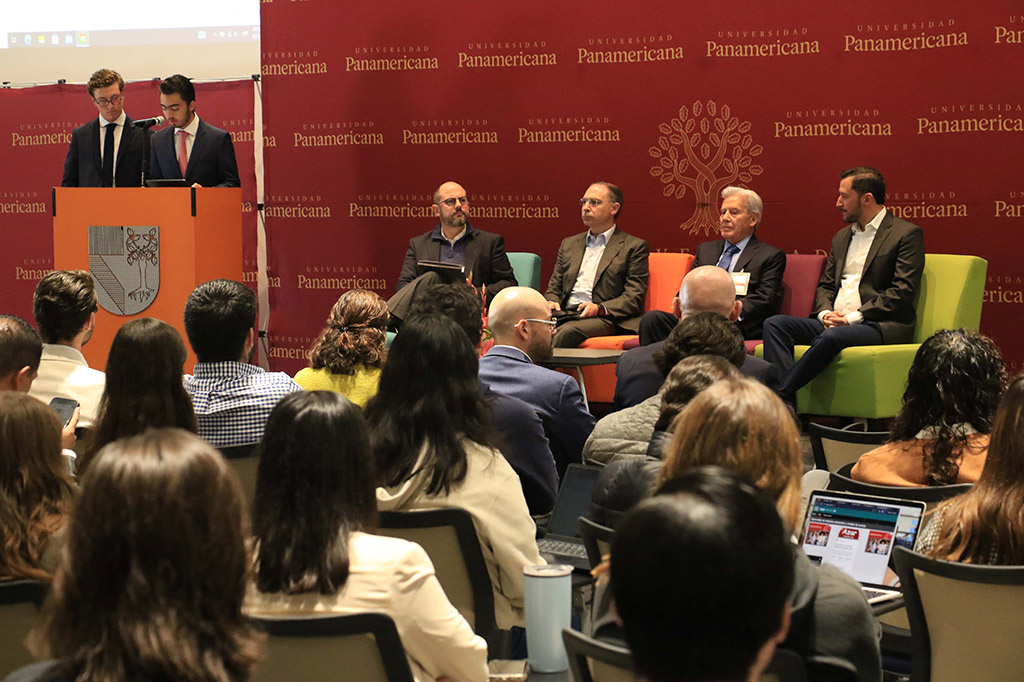
Digital revolution in the Mexican financial sector
In his second mediation, Dr. de la Fuente highlighted the importance of the digital revolution in the transformation of the world, "with a particular focus on its impact on the Mexican financial sector". He noted that such sector in our country is undergoing a significant transformation with the incorporation of technology, and raised the question of why this evolution has not translated into cheaper credit products.
Iván Canales, highlighted the financial inclusion gap in Mexico, where "only half of Mexicans have access to a formal bank account and 11% to a credit card, compared to other Latin American countries". He added "the supply of financial services in Mexico does not meet the needs of the population and this is where technology can play a key role".
He also highlighted the role of technology in improving financial products, simplifying them and making them more accessible. He also highlighted the importance of technology in bringing financial services to rural areas and priority municipalities.
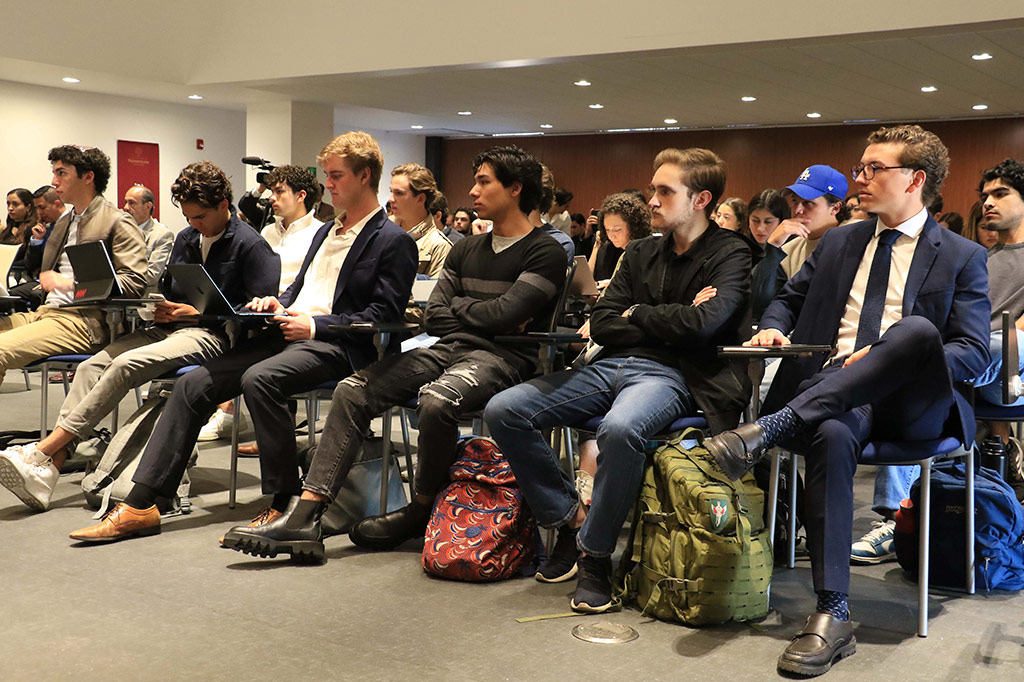
Environmental and social aspects in the financial sector
Subsequently, de la Fuente addressed the question of how to integrate environmental, social and governance (ESG) aspects into financial sector operations in Mexico and asked what needs to be done in our country to incorporate these aspects into financial sector operations.
Álvaro Vértiz emphasized: "Access to financial services continues to be a challenge in the country, and despite the efforts made by the Ministry of Finance, the National Banking and Securities Commission and the Securities and Savings Banking Unit to establish a sustainable taxonomy, there are still challenges to be faced".
He also suggested: "the digital financial sector can be key to addressing the challenges of financial inclusion in Mexico, as it is not limited by traditional physical infrastructure and can focus on customer needs".
Regarding regulation, he emphasized the importance of developing efficient and flexible regulatory frameworks that encourage the rapid and effective growth of financial inclusion, without imposing unnecessary barriers.



